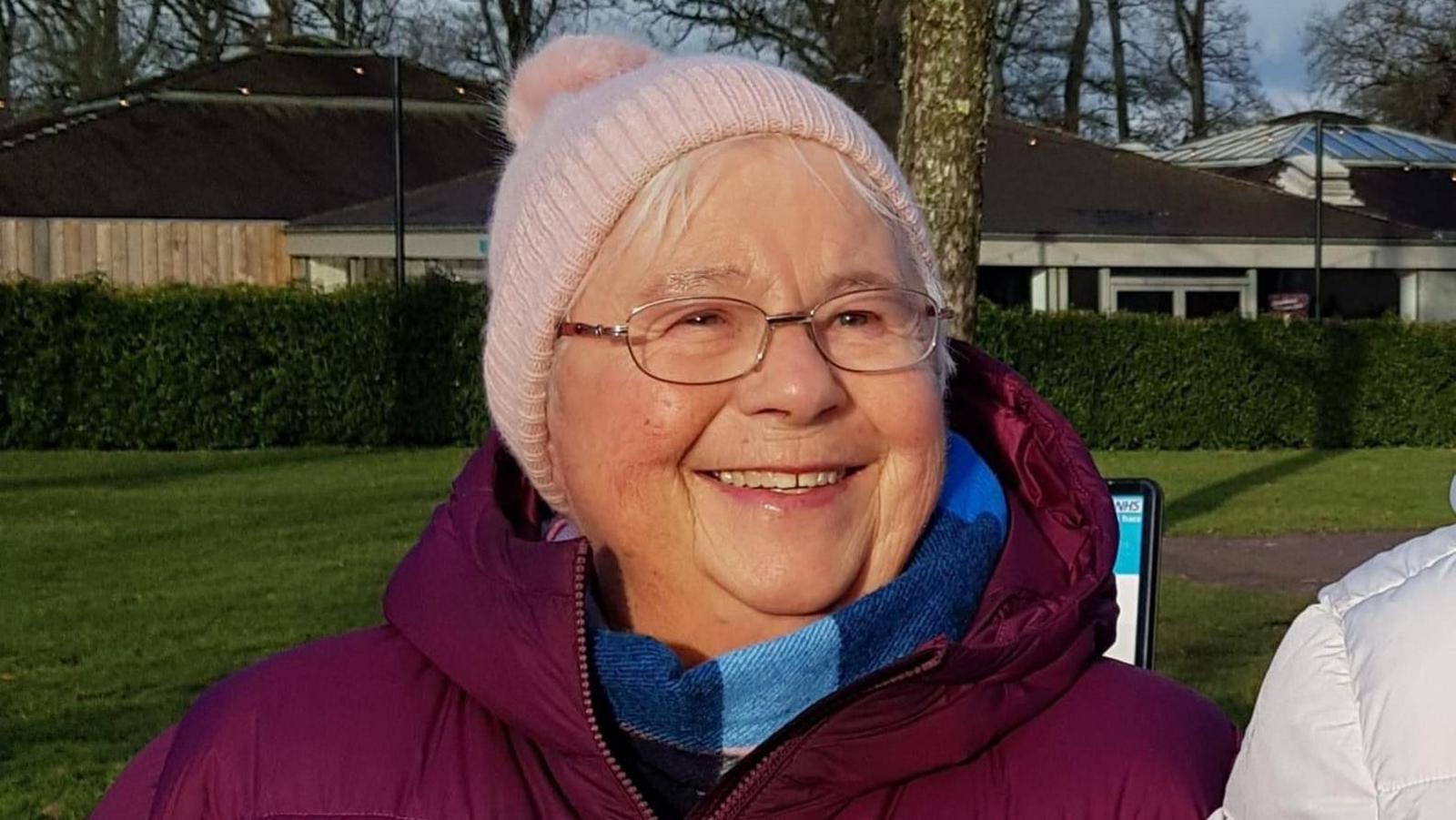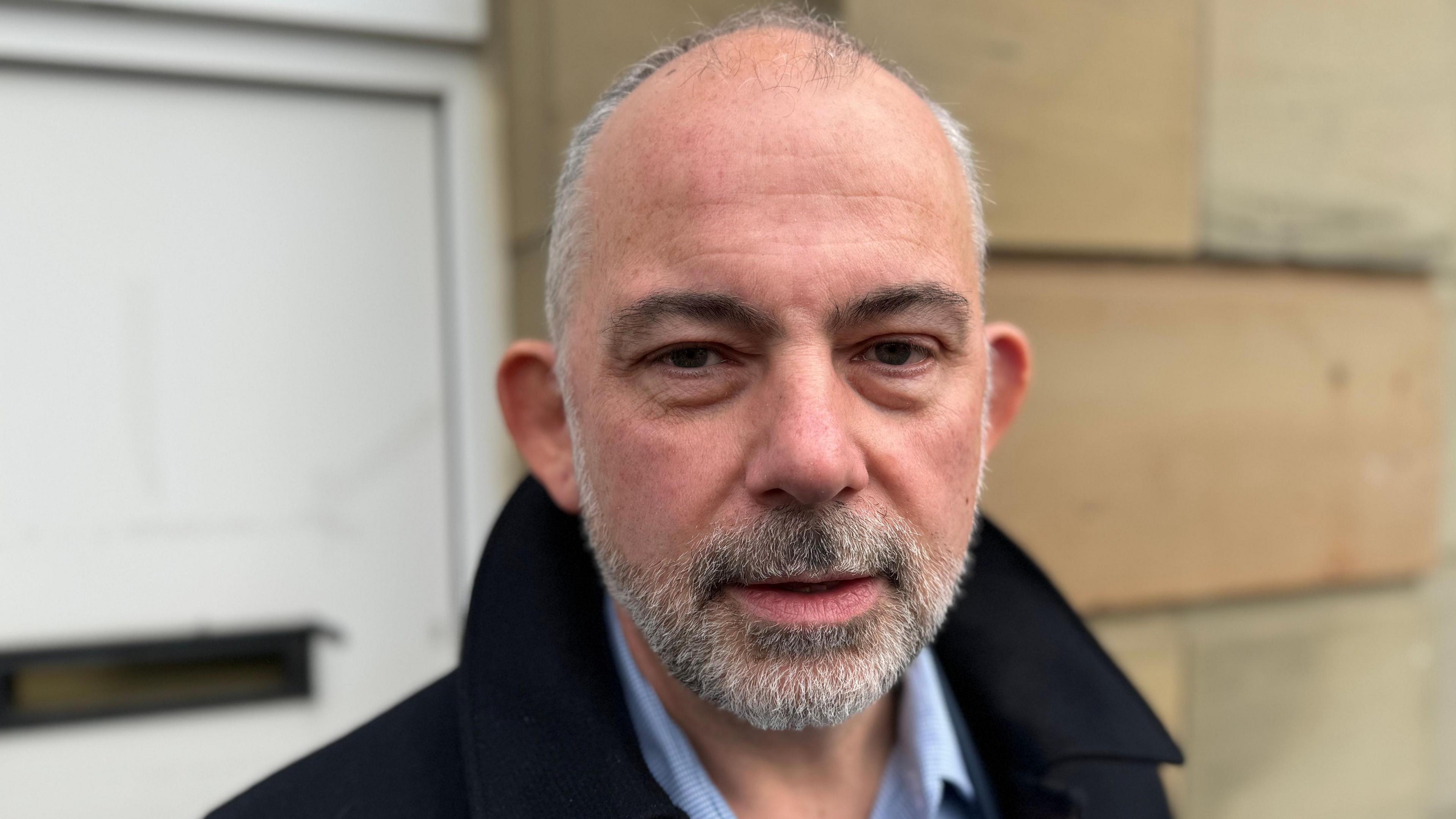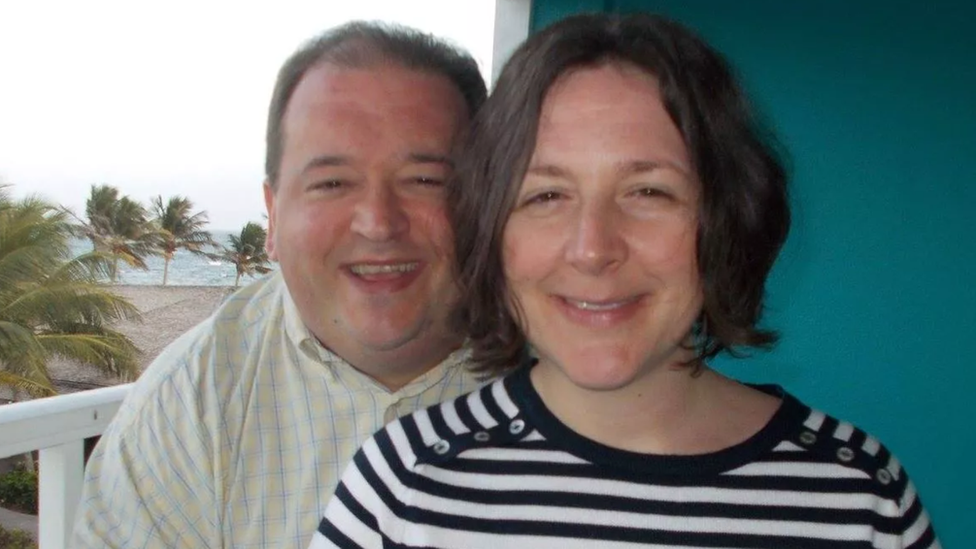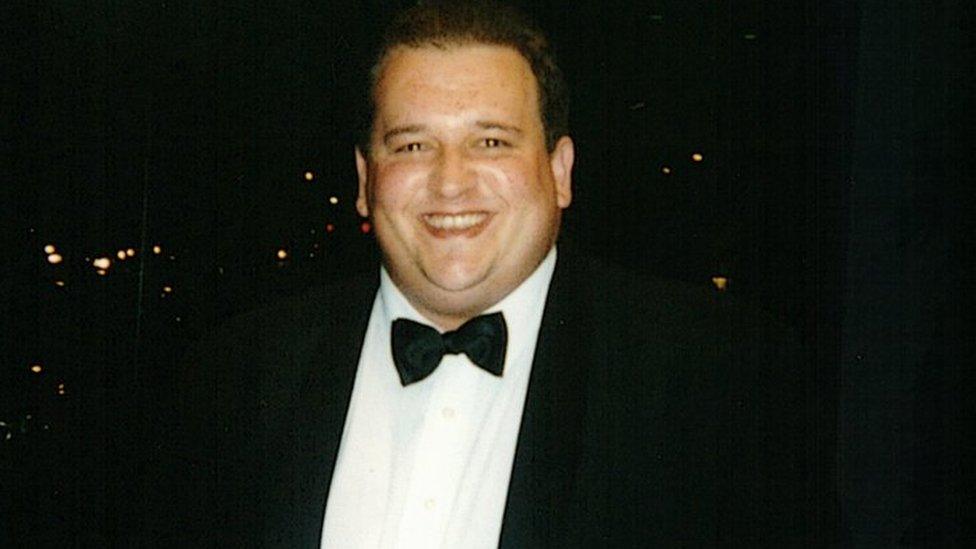Transfer delay for woman who died after private op

Gwynneth Exall, 79, died a day after a hip replacement at Nuffield Health Vale Hospital
- Published
Three separate opportunities were missed to transfer a 79-year-old woman to an emergency unit when complications developed following hip surgery at a private hospital, a coroner has found.
Gwynneth Exall, from Swansea, died of cardiac arrest on 28 April 2022, one day after a hip replacement procedure at Nuffield Health Vale Hospital.
Recording a narrative conclusion, Coroner Patricia Morgan said there was “a lack of escalation and timely treatment which impacted her prospects of surviving a cardiac event”.
She highlighted three occasions when an ambulance should have been called to transfer Mrs Exall to the University Hospital of Wales in Cardiff to give her a “greater prospect of survival”.
Woman's intensive care transfer too late - inquest
- Published3 December 2024
Woman died after private hip operation - inquest
- Published2 December 2024
The first occasion was at 08:00 on the morning of 28 April. An ambulance was called at about16:00.
Gwynneth Exall had sought private treatment to avoid having to wait for an operation on the NHS.
The inquest in Pontypridd on Wednesday heard her blood pressure and urine levels had been low following the surgery on 27 April, before her condition deteriorated the following day.
The private hospital did not have the facilities to deal with acutely ill patients, including the rapid deterioration in Mrs Exall’s condition and cardiac arrest, according to evidence heard during the inquest.
The coroner also found there were “insufficient on-site consultants” at the hospital, with nursing staff feeling unable to escalate the situation and call an ambulance without referring to a consultant.
Ms Morgan found it was “not sufficient” for telephone consultations to take place with doctors about Mrs Exall’s condition, rather than in-person consultations.
Dr Mark Raper, an intensive care consultant at the University Hospital of Wales, told the inquest Mrs Exall should have been taken by ambulance to intensive care at another hospital hours earlier than she was.
He said if she had been transferred earlier “on the balance of probability her mortality risk would be lower”.
He told the coroner it would have been “entirely appropriate” to call an ambulance at 08:00 rather than later in the afternoon.

Mrs Exall’s son David said hospital staff "did not appear to know what was happening” to his mother
In a statement, Mrs Exall's son David said the paramedics shouted at the staff in the private hospital, “frustrated at their inaction”.
The pathologist who carried out the post mortem examination, Professor Richard Attanoos, concluded Mrs Exall “would not have died when she died had she not had surgery”.
The inquest heard some observations of Mrs Exall’s blood pressure had been written on paper and not put on the hospital’s computer system, resulting in them being unavailable to clinicians making decisions on her treatment.
The coroner was told these issues had been addressed and observations should be directly entered onto the computer system as they are taken, with paper records used “very rarely”.
Nuffield Health said it was “deeply saddened by the passing of Mrs Exall".
"Our thoughts remain with the patient’s family," it said.
"Our priority is patient safety and delivering the highest quality of care to our patients.”
- Published13 February 2024

- Published9 February 2024
